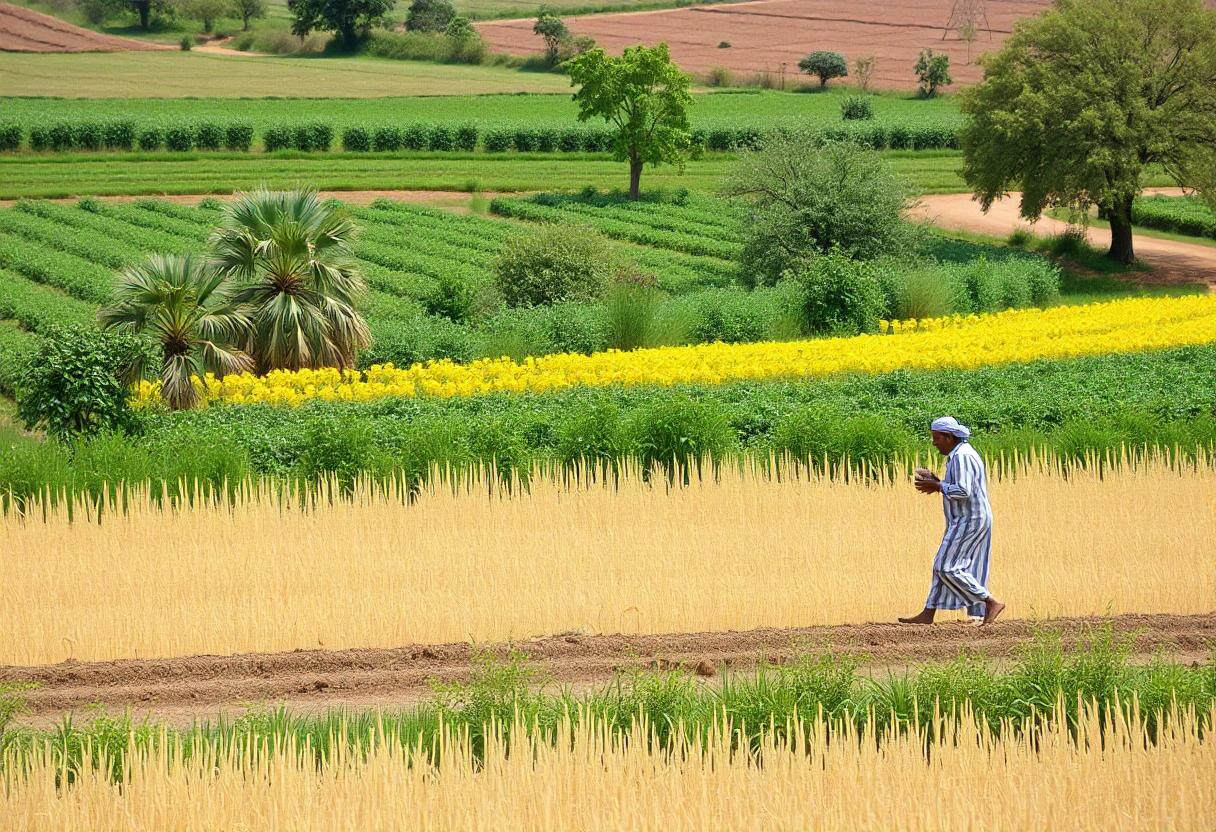
Precision agriculture is revolutionizing farming by integrating advanced technologies to optimize crop production. Innovations such as GPS-guided tractors, drones, and IoT sensors are providing farmers with detailed insights into their fields. These technologies enable more accurate monitoring of soil conditions, crop health, and weather patterns, leading to more efficient use of resources and improved yields.
Sustainable Farming Practices Gaining Traction
Sustainability in agriculture is becoming increasingly important as concerns about environmental impact grow. Farmers are adopting practices like crop rotation, reduced tillage, and organic farming to enhance soil health and reduce chemical usage. These methods not only help in conserving natural resources but also promote biodiversity and reduce the carbon footprint of agricultural operations.
Impact of Climate Change on Crop Yields
Climate change is significantly affecting agriculture, with shifting weather patterns and extreme events impacting crop yields. Increased temperatures, altered precipitation patterns, and more frequent droughts are challenging traditional farming practices. Researchers and farmers are working on developing climate-resilient crop varieties and adaptive farming strategies to mitigate these effects and ensure food security.
Innovations in Crop Breeding and Genetic Engineering
Recent advancements in crop breeding and genetic engineering are transforming agriculture by developing crops that are more resistant to pests, diseases, and environmental stresses. Genetic modification techniques, such as CRISPR, allow for precise edits to plant genomes, enhancing traits like drought resistance and nutrient content. These innovations promise to improve crop productivity and resilience in the face of changing conditions.
Emerging Trends in Agrochemical Use
The agrochemical industry is evolving with new products and formulations designed to improve crop protection and productivity. Integrated pest management (IPM) approaches are becoming more prevalent, combining biological, cultural, and chemical methods to manage pests and diseases. Additionally, there is a growing focus on reducing the environmental impact of agrochemicals by developing more targeted and biodegradable solutions.
Growth of Urban Agriculture
Urban agriculture is on the rise as cities seek to enhance food security and sustainability. Vertical farms, rooftop gardens, and community gardens are becoming common in urban areas, providing fresh produce to city dwellers and reducing the need for long-distance transportation. This trend is also fostering local food systems and increasing community engagement in food production.
Advances in Farm Management Software
Farm management software is becoming an essential tool for modern farmers, offering solutions for planning, monitoring, and analyzing agricultural operations. These platforms provide data-driven insights into various aspects of farm management, including crop performance, resource allocation, and financial planning. The integration of AI and machine learning in these tools is further enhancing their capabilities and usability.